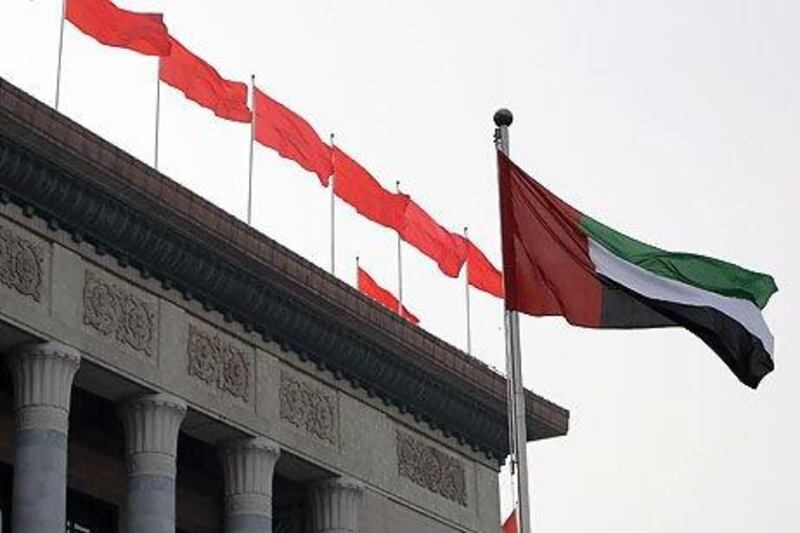UAE traders could save more than US$200 million (Dh734.5m) a year by settling trade with China in the yuan, research by Western Union has found.
The majority of small to medium-sized enterprises (SMEs) trading between China and the UAE are using US dollars, leaving them exposed to foreign exchange costs and charges, according to research by Western Union Business Solutions, the first non-bank provider to launch direct yuan payments into China.
"This demonstrates a lack of awareness among SMEs in both the UAE and China about renminbi [the yuan's other name] and how easy it has recently become to conduct trade with it," said Prrasad Katta, the regional director for the Middle East and Africa at Western Union Business Solutions.
"Many businesses have become so accustomed to paying in US dollars that the ability to pay in renminbi is still taking some people by surprise - and they are unaware that this reluctance could be costing them."
Since 2009 China has embarked on a gradual drive to raise the international profile of the yuan in line with the rapid growth of its economy.
Trade between the UAE and China has accelerated at a rapid rate in recent years, rising by an annual rate of about 35 per cent in the past decade to reach $35 billion in 2011.
Banks and exchange houses are positioning themselves to capture the measured transition from using dollars to yuan to settle exports from China.
Western Union found that 90 per cent of SMEs in the UAE it questioned continued to use dollars to pay Chinese suppliers.
Only 5 per cent pay in yuan, it found. A total of 13 per cent of respondents said they planned to use the yuan.
A separate survey of Chinese exporters by the company in 2011 found more than a third would rather be paid in the yuan. One in five Chinese exporters admitted to adding an average of 3 per cent in fees or surcharges to invoices to cover foreign-exchange risk associated with receiving payments in dollars.
With more than $33.8bn of goods imported to the UAE from China last year, it equates to more than $200m in hidden charges, estimated Western Union.
"Direct renminbi payments could help SMEs reduce their exposure to currency fluctuations and give them the ability to price and settle invoices straight into renminbi providing a faster, cheaper and more transparent supply chain," said Mr Katta.
"Chinese suppliers can also benefit helping to reduce costs in the supply chain while simultaneously protecting profit margins."
China has renewed its pledge to operate a more flexible exchange rate for the yuan, potentially opening UAE importers up to the risk of further foreign-exchange costs.
A total of 60 per cent of UAE traders surveyed said they were unaware of the commercial opportunities of trading in the yuan.





